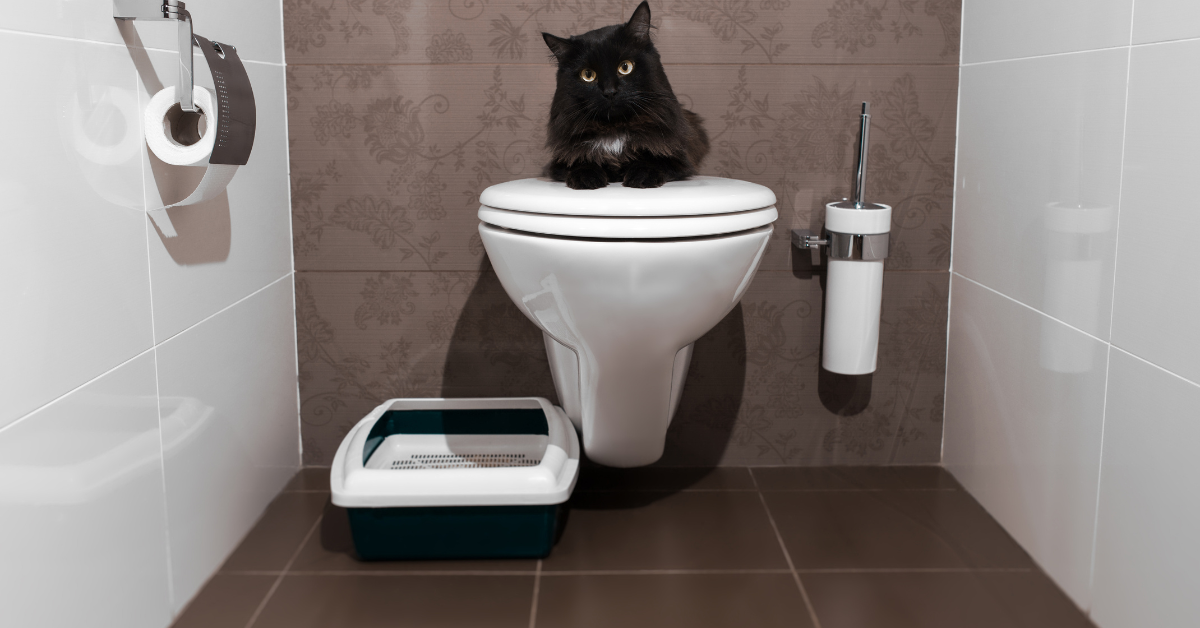Dangers of Disposing Cat Poop in Your Toilet - Precautionary Measures
Dangers of Disposing Cat Poop in Your Toilet - Precautionary Measures
Blog Article
This great article down below pertaining to Don’t flush cat feces down the toilet is immensely enlightening. Don't miss it.

Intro
As pet cat proprietors, it's vital to be mindful of exactly how we dispose of our feline close friends' waste. While it may appear hassle-free to purge pet cat poop down the bathroom, this practice can have damaging repercussions for both the setting and human health and wellness.
Environmental Impact
Flushing pet cat poop presents hazardous pathogens and bloodsuckers into the water, presenting a considerable threat to aquatic ecosystems. These impurities can negatively impact aquatic life and compromise water top quality.
Health and wellness Risks
In addition to ecological concerns, flushing pet cat waste can also pose health dangers to people. Pet cat feces may contain Toxoplasma gondii, a bloodsucker that can trigger toxoplasmosis-- a potentially severe ailment, particularly for expecting ladies and individuals with damaged body immune systems.
Alternatives to Flushing
The good news is, there are more secure and much more accountable methods to take care of cat poop. Think about the adhering to alternatives:
1. Scoop and Dispose in Trash
One of the most typical technique of getting rid of cat poop is to scoop it right into an eco-friendly bag and toss it in the trash. Make sure to use a committed trash scoop and get rid of the waste promptly.
2. Usage Biodegradable Litter
Go with naturally degradable pet cat litter made from products such as corn or wheat. These clutters are environmentally friendly and can be safely thrown away in the trash.
3. Hide in the Yard
If you have a lawn, think about hiding feline waste in a designated location away from vegetable yards and water resources. Make sure to dig deep adequate to prevent contamination of groundwater.
4. Mount a Pet Waste Disposal System
Invest in a family pet garbage disposal system especially created for feline waste. These systems utilize enzymes to break down the waste, reducing smell and environmental effect.
Verdict
Accountable animal ownership prolongs past supplying food and shelter-- it likewise includes appropriate waste management. By refraining from purging feline poop down the bathroom and opting for different disposal techniques, we can lessen our ecological footprint and safeguard human wellness.
Why You Should Never Flush Cat Poop Down the Toilet
A rose by any other name might smell as sweet, but not all poop is created equal. Toilets, and our sewage systems, are designed for human excrement, not animal waste. It might seem like it couldn’t hurt to toss cat feces into the loo, but it’s not a good idea to flush cat poop in the toilet.
First and foremost, assuming your cat uses a litter box, any waste is going to have litter on it. And even the smallest amount of litter can wreak havoc on plumbing.
Over time, small amounts build up, filling up your septic system. Most litter sold today is clumping; it is made from a type of clay that hardens when it gets wet. Ever tried to scrape old clumps from the bottom of a litter box? You know just how cement-hard it can get!
Now imagine just a small clump of that stuck in your pipes. A simple de-clogger like Drano isn’t going to cut it. And that means it’s going to cost you big time to fix it.
Parasitic Contamination
Believe it or not, your healthy kitty may be harboring a nasty parasite. Only cats excrete Toxoplasma in their feces. Yet it rarely causes serious health issues in the cats that are infected. Most people will be fine too if infected. Only pregnant women and people with compromised immune systems are at risk. (If you’ve ever heard how women who are expecting are excused from litter cleaning duty, Toxoplasma is why.)
But other animals may have a problem if infected with the parasite. And human water treatment systems aren’t designed to handle it. As a result, the systems don’t remove the parasite before discharging wastewater into local waterways. Fish, shellfish, and other marine life — otters in particular — are susceptible to toxoplasma. If exposed, most will end up with brain damage and many will die.
Depending on the species of fish, they may end up on someone’s fish hook and, ultimately on someone’s dinner plate. If that someone has a chronic illness, they’re at risk.
Skip the Toilet Training
We know there are folks out there who like to toilet train their cats. And we give them props, it takes a lot of work. But thanks to the toxoplasma, it’s not a good idea.

I'm certainly very enthusiastic about Don’t flush cat feces down the toilet and I'm hoping you enjoyed the blog posting. Appreciated our blog entry? Please share it. Help another person find it. Many thanks for taking the time to read it.
About This Report this page